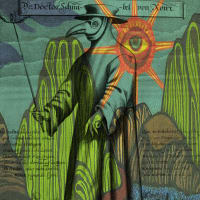 Jean Omer Marie Gabriel Monnet (French pronunciation: [ʒɑ̃ mɔnɛ]; 9 November 1888 – 16 March 1979) was a French political economist and diplomat. He is regarded by many as a chief architect of European unity[1] and is regarded as one of the founding fathers of the European Union. Never elected to public office, Monnet worked behind the scenes of American and European governments as a well-connected pragmatic internationalist.[2] The 1980–1981 academic year at the College of Europe was named in his honour.Monnet was born in Cognac, Charente, into a family of cognac merchants. At the age of sixteen, he abandoned his university entrance examinations part way through and moved to London, where he spent some years in the City of London with Mr. Chaplin, the agent of his father's company. Subsequently, he traveled widely – to Scandinavia, Russia, Egypt, Canada, and the United States – for the family business.Monnet believed that the only path to an Allied victory lay in the merging of France and Britain's war efforts and he reflected on a concept that would co-ordinate war resources. In 1914, young Monnet was allowed to meet French Premier René Viviani on this issue. The French government agreed in principle upon his plans. During the first years of the war, Monnet did not have much success promoting and pressing internationally for a better organization of the allied economic cooperation. However, finally, stronger combines like the Wheat Executive (end of 1916) and the Allied Maritime Transport Council (end of 1917) were set into work and had a big share[citation needed] in winning the war.
Jean Omer Marie Gabriel Monnet (French pronunciation: [ʒɑ̃ mɔnɛ]; 9 November 1888 – 16 March 1979) was a French political economist and diplomat. He is regarded by many as a chief architect of European unity[1] and is regarded as one of the founding fathers of the European Union. Never elected to public office, Monnet worked behind the scenes of American and European governments as a well-connected pragmatic internationalist.[2] The 1980–1981 academic year at the College of Europe was named in his honour.Monnet was born in Cognac, Charente, into a family of cognac merchants. At the age of sixteen, he abandoned his university entrance examinations part way through and moved to London, where he spent some years in the City of London with Mr. Chaplin, the agent of his father's company. Subsequently, he traveled widely – to Scandinavia, Russia, Egypt, Canada, and the United States – for the family business.Monnet believed that the only path to an Allied victory lay in the merging of France and Britain's war efforts and he reflected on a concept that would co-ordinate war resources. In 1914, young Monnet was allowed to meet French Premier René Viviani on this issue. The French government agreed in principle upon his plans. During the first years of the war, Monnet did not have much success promoting and pressing internationally for a better organization of the allied economic cooperation. However, finally, stronger combines like the Wheat Executive (end of 1916) and the Allied Maritime Transport Council (end of 1917) were set into work and had a big share[citation needed] in winning the war.At the Paris Peace Conference, Monnet was an assistant to the French minister of commerce and industry, Etienne Clémentel, who proposed a "new economic order" based on European cooperation. The scheme was officially rejected by the Allies in April 1919.[3]
Due to his contributions to the war efforts, Monnet, at the age of thirty-one, was named Deputy Secretary General of the League of Nations upon its creation in 1919, by French premier Georges Clemenceau and British statesman Arthur Balfour.
Soon disillusioned with the League because of its laborious unanimous decision-making processes, Monnet resigned in 1923 in order to devote himself to managing the family business, which was experiencing difficulties. He returned to international politics and, as an international financier, he proved to be instrumental in the economic recovery of several Central and Eastern European nations, helping to stabilise the Polish zloty in 1927, and the Romanian leu in 1928. In 1929, his experience in international finance led him to found and co-manage the Bancamerica-Blair, a bank in San Francisco. From 1934 to 1936, at the invitation of Chiang Kai-shek, Monnet lived in China, assisting with the reorganization of the Chinese railway network.Following World War II France was in severe need of reconstruction. To rebuild, France was completely dependent on coal from Germany's main remaining coal-mining areas, the Ruhr area and the Saar area. (The German coal fields in Upper Silesia had been handed over for "Polish administration" by the Allies in 1945, see Oder-Neisse line.)
In 1945 Monnet proposed the Monnet Plan, also known as the theory of l’engrenage, not to be confused with Schuman plan, to take control of the remaining coal-producing German areas and redirect the production away from German industry and into French industry instead, permanently weakening Germany and raising the French economy considerably above its pre-war levels. The plan was adopted by Charles de Gaulle in early 1946.[1]
In 1946 Monnet successfully negotiated the Blum–Byrnes agreement with the United States. The U.S. forgave France $2.8 billion in debts (mostly World War I loans), and gave an additional low-interest loan of $650 million. In turn France allowed American films in its cinemas.[5]
In 1947 France, with U.S. support, removed the Saar from Germany and turned it into the Saar protectorate, nominally politically independent and under complete French economic control. The area returned to German political administration in 1957 (economic reunification would take many years longer), but France retained the right to mine from its coal mines until 1981 (see The Europeanization of the Saarland).
The Ruhr Agreement was imposed on the Germans as a condition for permitting them to establish the Federal Republic of Germany[6] (see also the International Authority for the Ruhr (IAR)). The IAR controlled production levels, pricing, and to where the output was to be sold, thus ensuring that France received a large portion of the Ruhr coal production at low prices.
With the 1951 German agreement to join the European Coal and Steel Community (the "Schuman Plan") the ongoing Allied dismantling of German industry was finally stopped and some of the restrictions placed on German industrial output were lifted (see The British foreign ministers' 1949 letter to Schuman).
With the entry into force of the ECSC in 1952 the last civilian production limitations placed on German industry were lifted, and the role of the IAR was taken over by the ECSC[7] (see The industrial plans for Germany).
In 1955, Monnet founded the Action Committee for the United States of Europe in order to revive European construction following the failure of the European Defense Community (EDC). It brought political parties and European trade unions together to become a driving force behind the initiatives which laid the foundation for the European Union as it eventually emerged: first the European Economic Community (EEC) (1958) (known commonly as the "Common Market"), which was established by the Treaty of Rome of 1957; later the European Community (1967) with its corresponding bodies, the European Commission and the European Council of Ministers, British membership in the Community (1973), the European Council (1974), the European Monetary System (1979), and the European Parliament (1979). This process reflected Monnet's belief in a gradualist approach for constructing European unity.
On 6 December 1963, Monnet was presented with the Presidential Medal of Freedom, with Special Distinction, by President Lyndon Johnson. After retiring to his home in Houjarray, Bazoches-sur-Guyonne, Monnet wrote his memoirs.
He died in 1979 at the age of 90. In 1988, by order of the president François Mitterrand, Jean Monnet's remains were transferred to the Panthéon of Paris.


















※コメント投稿者のブログIDはブログ作成者のみに通知されます